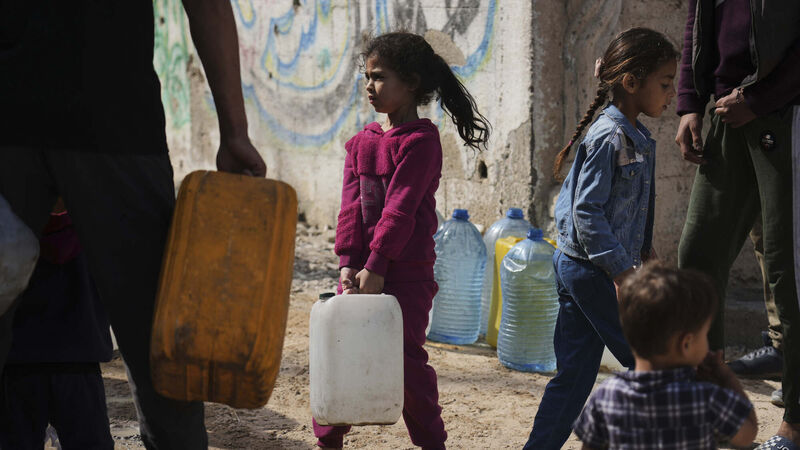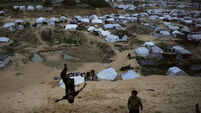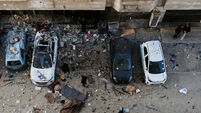'Everything in Gaza finds a horrific, heartbreaking way to get worse'

Children collect water in jerrycans at a distribution point in Gaza, where more than 80% of water and sanitation infrastructure has been destroyed. Picture: Jehad Alshrafi/AP
A child has been killed every hour of every single day in Gaza over the past 21 months.
Now, death by dehydration has become the latest barbaric tool being used by Israel against Palestinians.
















